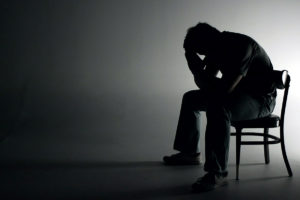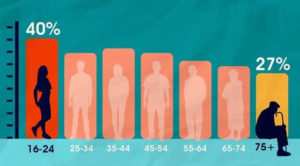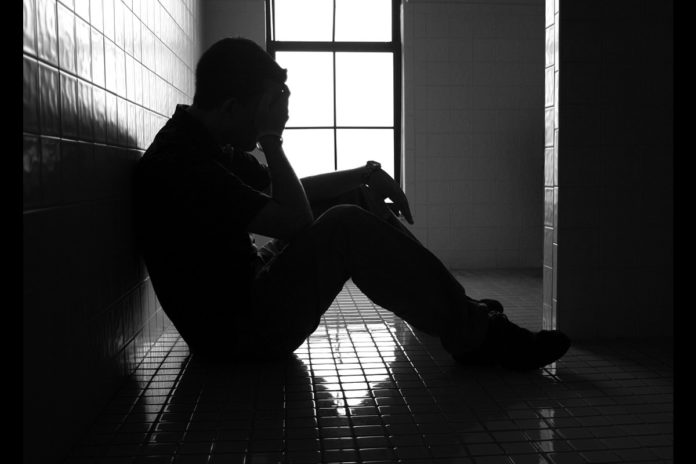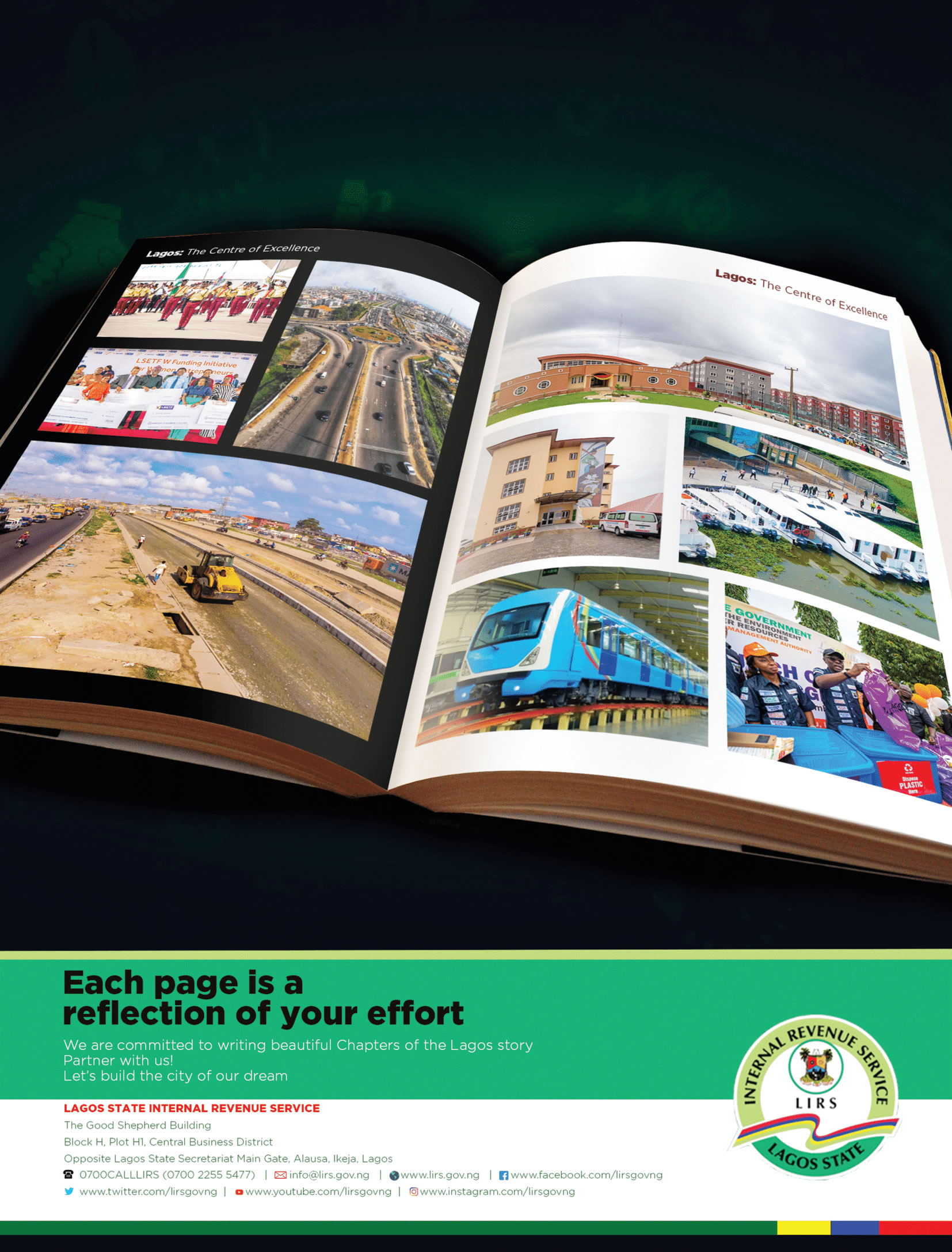Study after study has shown that loneliness is bad for our health. It raises the risk of a person suffering heart disease and stroke, and is as hazardous as smoking or obesity. Lonely people could even be at risk of dying earlier.
It’s enough to make governments and health organisations sit up and take notice. So how lonely are we? And who is most at risk?
A huge new study – the largest of its kind on loneliness – can help provide answers to those and many other questions.
The experiment
On Valentine’s Day earlier this year, British broadcaster the BBC, in collaboration with researchers at the University of Manchester, Brunel University London and the University of Exeter, and funded by Wellcome Collection, launched the BBC Loneliness Experiment.
The experiment included an in-depth survey on loneliness open to anyone over the age of 16. Among the questions were: What qualities do you look for in a friend? What does loneliness mean to you? and What do you think lonely people could do to feel better?
Participants were also asked about their use of technology and lifestyle. More than 55,000 people from all over the world took part, making it the largest-ever survey of its kind.
And it had some surprising findings.
- Young people are the most lonely
Young people report higher levels of loneliness than older people. It’s not surprising that many older people feel lonely. Friends may have died, they may have lost life partners, and their family – if they have one – may live some distance away.
But, according to the survey, it’s actually young people who say they are suffering the most. Forty percent of 16-24 year olds say they feel lonely, compared with only 27% of those aged 75 or older.
The results echo those of other surveys carried out earlier in the year.
 A study by the UK’s Office of National Statistics found that young adults are much more likely to report feeling lonely than those aged 65 and over. And in a US survey by health insurers Cigna, generation Z reported the highest rates of loneliness compared to other age groups.
A study by the UK’s Office of National Statistics found that young adults are much more likely to report feeling lonely than those aged 65 and over. And in a US survey by health insurers Cigna, generation Z reported the highest rates of loneliness compared to other age groups.
It could be that young people are simply more open to talking about how they feel, the BBC survey suggests. Or it could be that young adults experience a lot of upheaval; perhaps leaving home for the first time or starting a new job.
- Living alone doesn’t make you lonely
Living alone isn’t the problem, it’s spending too much time alone. The survey found that people living alone weren’t necessarily more lonely than those who lived with others. That finding suggests that living alone isn’t as much of a problem as spending lots of time alone.
- It’s not a lack of social skills
Loneliness carries stigma – people don’t like to admit to feeling lonely because they don’t want others to think there’s something wrong with them. The survey included an experiment, which asked people to guess what emotion someone was feeling just by looking at a picture of their face or their eyes. Those who said they were lonely had no measurable difference in their answers to those who said they weren’t lonely, suggesting, when placed in conjunction with other experiments, that their social skills are the same.
- People aren’t lonelier in winter
It’s easy to assume that people would feel lonelier in winter because they don’t go out as much. However, the BBC study found that there is no real time of year when people feel loneliest.
- Loneliness can be a good thing
Surprisingly, 41% of people think loneliness can be a positive experience. It can be the jolt we need to make changes, such as joining a club or taking up a sport. In many cases, loneliness is only a temporary state. However, only 31% of respondents who said they felt lonely agreed, emphasizing just how debilitating the feeling can be.
What is loneliness?
Loneliness is not the same as being alone. People often choose to be alone, but they don’t choose loneliness. We can be surrounded by friends and family but still feel lonely.
Participants said that loneliness was the feeling of having no one to talk to, and of having no one who really understands you. Asked what words they associated with loneliness, some of the most common responses were: “feel”, “people”, “alone”, “share” and “someone”.
Too busy to make friends
Some people have reported simply being too busy to make friends. Earlier this year a YouGov survey found that over half (54%) of UK adults said it had been a long time since they made a new, valued connection or friend.
Of those, almost half said that they were simply too busy to connect with others, even though they would like to. They were referring not just to meeting new people, but to seeing family and friends as well.
Small things can make a difference
 Participants in the YouGov survey said that even small connections made a difference. The vast majority (88%) said that small talk during a ride on public transport or a smile from a stranger helped them to feel less lonely.
Participants in the YouGov survey said that even small connections made a difference. The vast majority (88%) said that small talk during a ride on public transport or a smile from a stranger helped them to feel less lonely.
The BBC survey asked respondents to suggest ways to alleviate loneliness. Popular ideas included finding a new hobby or sport, confiding in someone that they were lonely, and initiating meetings with people. The piece of advice they said they found least helpful was to go on a date.
Tackling the problem
Governments are taking the issue of loneliness very seriously. In January, Britain appointed a minister to help combat loneliness.
In Japan, the government is having to rethink its welfare system and social services programme following a spate of elderly people deliberately getting themselves arrested out of loneliness.
The BBC admits that its survey wasn’t scientific. Its respondents were self-selecting, which means that people feeling lonely may have been more inclined to take part.
However, the lead author, Professor Pamela Qualter from the University Of Manchester said that nevertheless it offered key points for discussion.
“The response to the BBC Loneliness Experiment has been significant,” Qualter said in a press release. People have provided valuable insights into when and how loneliness is experienced, how it relates to age, being alone, caring responsibilities, employability, and discrimination.”
In addition, she said that the survey had unearthed various solutions that could be deployed to help people overcome loneliness, adding that: “Those findings suggest that we need to be kinder to ourselves when we feel disconnected from others, but also that there is a whole toolkit of potential solutions that we can try.”
By Alex Gray
First published on the World Economic Forum website






























